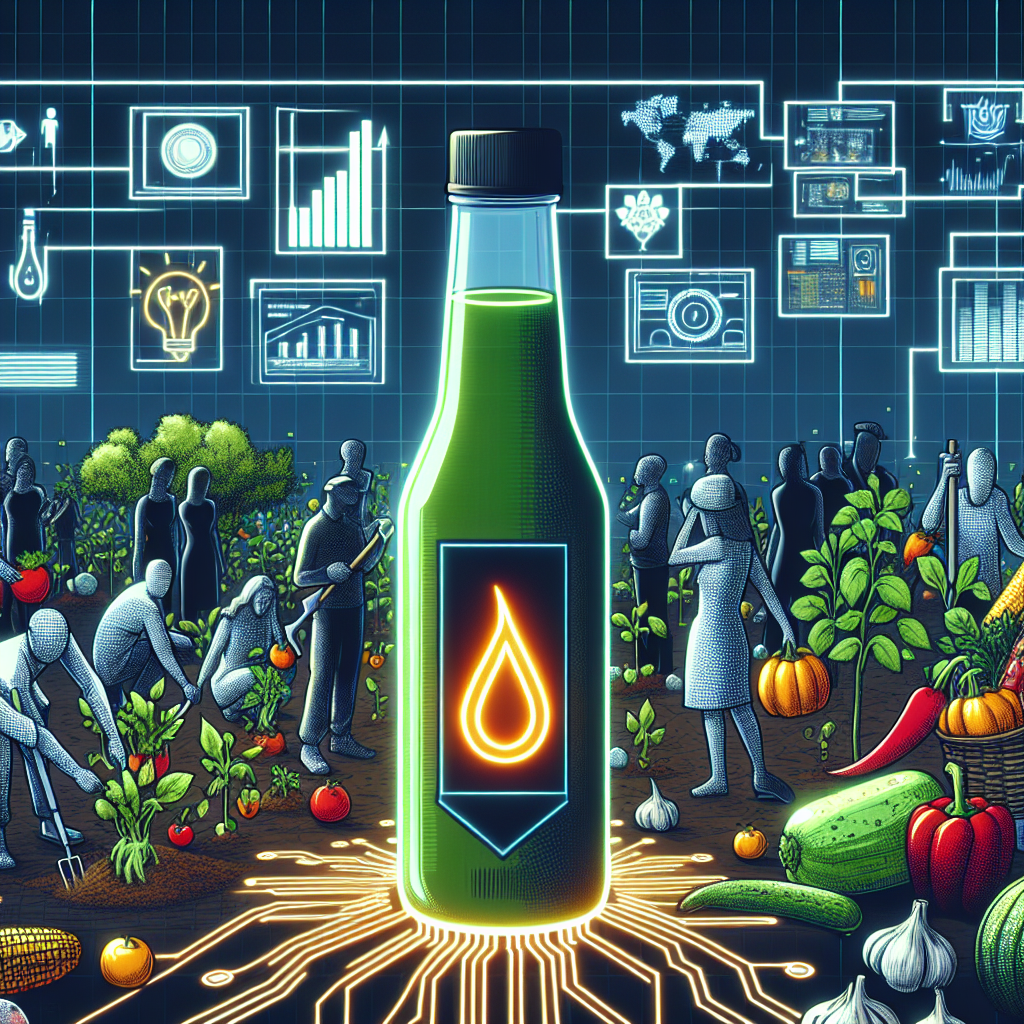Spicing Up Communities: The Impact of Community Gardens Hot Sauce
Explore the world of community gardens hot sauce and discover how this unique culinary creation fosters community engagement, sustainability, and economic empowerment. From growing peppers to harvesting and processing, community gardens hot sauce exemplifies the fusion of culinary creativity and social impact.

II. The Rise of Community Gardens Hot Sauce
A. Benefits of Community Gardens
Community gardens hot sauce is a unique and socially impactful way of producing spicy condiments while promoting community engagement and sustainability. By growing and harvesting peppers in communal garden spaces, individuals can come together to create flavorful sauces that not only tantalize taste buds but also strengthen the bonds within a community.
According to Holly Rippon-Butler, Director of Nourish Network for the Hudson Valley Seed Company, 'Community gardens provide a space for people to connect with each other and the earth, fostering a sense of belonging and ownership over the food they consume.' This sense of ownership is further heightened when individuals collaborate to cultivate peppers for hot sauce production.
B. Connecting Communities through Hot Sauce
Community gardens hot sauce serves as a catalyst for building relationships among diverse groups of people. As noted by Tim Schaeffer, Executive Director of the Cornell Cooperative Extension in Monorvia, 'The act of growing, harvesting, and processing peppers into hot sauce creates a shared experience that transcends cultural and social barriers, uniting individuals through a common culinary pursuit.'
III. The Process of Making Community Gardens Hot Sauce
A. Growing Pepper Varieties in Community Gardens
Community gardens often feature a variety of pepper plants, including jalapeños, habaneros, and cayenne peppers. Pepper enthusiasts like Jolene Collins from Pepper Joe's Seeds recommend selecting heirloom varieties for their unique flavors and vibrant colors, enhancing the complexity of the hot sauce.
B. Harvesting and Processing Peppers
Once the peppers reach optimal ripeness, community gardeners come together to harvest and process the peppers for the hot sauce. Experts like Chef Miguel Santiago emphasize the importance of proper sanitation and processing techniques to ensure a safe and delicious final product.
IV. Case Studies in Community Gardens Hot Sauce
A. Urban Roots Community Garden Hot Sauce
The Urban Roots Community Garden in Detroit has successfully cultivated a signature hot sauce using locally grown peppers. By involving community members in every step of the production process, Urban Roots has not only created a popular condiment but also empowered residents to take pride in their culinary heritage.
B. Brooklyn Grange Hot Sauce
Brooklyn Grange, a rooftop farming enterprise in New York City, produces a range of hot sauces from peppers grown on their urban farms. Through partnerships with local restaurants and markets, Brooklyn Grange has demonstrated how community gardens hot sauce can have a widespread impact on the local food scene.
V. The Impact of Community Gardens Hot Sauce
A. Economic Benefits
Community gardens hot sauce has the potential to generate income for garden programs and participants through sales and partnerships. Rissa Miller, founder of The Hot Pepper Collective, highlights how selling hot sauce can support the financial sustainability of community gardens and empower individuals to pursue entrepreneurship opportunities.
B. Environmental Sustainability
By utilizing locally grown peppers, community gardens hot sauce reduces the carbon footprint associated with conventional hot sauce production. Dr. Sarah Chang, Environmental Science Professor at Green University, emphasizes the importance of sourcing ingredients sustainably to minimize environmental impact and promote ecological stewardship.
VI. Conclusion
Community gardens hot sauce represents a fusion of culinary creativity, community engagement, and environmental consciousness. Through collaborative efforts in growing and processing peppers, individuals can not only enjoy flavorful hot sauces but also contribute to the social and ecological resilience of their communities.
VII. Call to Action
For those interested in exploring the world of community gardens hot sauce further, consider joining local gardening initiatives or reaching out to organizations dedicated to promoting sustainable food practices. By engaging in conversations with fellow enthusiasts and experts in the field, you can deepen your understanding of how hot sauce can serve as a catalyst for positive change in communities worldwide.